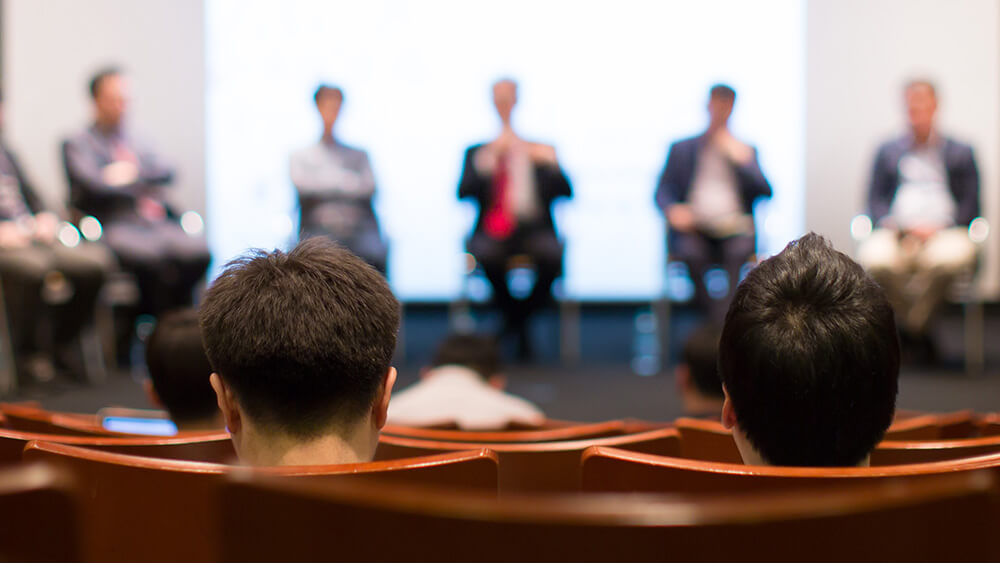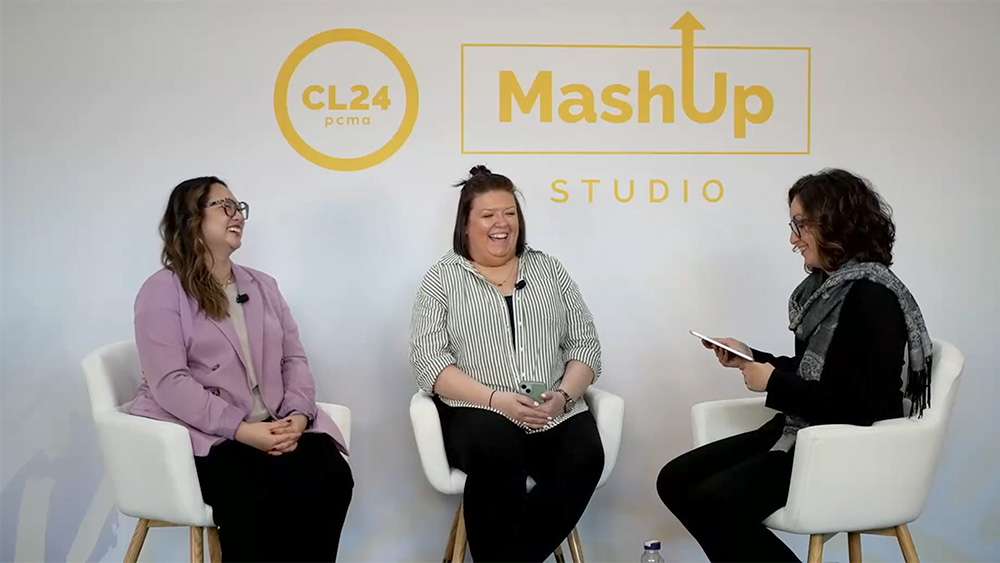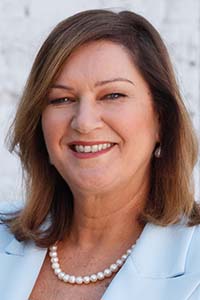
The phenomenon of manels — all-male panels — spills into many podcasts, where often more men than women are brought on as guests.
When the topic of manels, aka all-male panels, comes up, it’s often accompanied by a sense of furious determination to confront the forces that keep putting them on conference and event stages. But a recent story, which the author and podcast host Elise Loehnen shares in her newsletter, Pulling the Thread with Elise Loehnen, shows that the biases that seat more males than females on panels — and in the C-suite — are often closer to home than we think.
In “Ending the Manel,” published Feb. 14 on Substack, Loehnen wrote of meeting a woman at an event who told her a story about leadership training program she had been involved with in Africa. The six-week-long program was designed to help participants combat gender-based violence and touched on topics ranging from DEI to leadership to design thinking, the woman told Loehnen. At the end of the training, the 25 participants voted on who among them — all experts — could best represent their thinking about how to help African women on a panel.
The group — evenly divided between men and women — chose six men as the expert panelists and a female participant as moderator. When the program participant who told the story to Loehnen pointed out that gender imbalance to the others in the program, they were all shocked at what they had done, “completely unaware of how their bias, or preference for seeing men as primary experts, manifested,” Loehnen reported. “This, from a group that specifically convened to spend six weeks of their lives in protracted discussions about how to solve oppression toward women and gender-based violence.”

Nikki Gonzales from Soundings Connect (from left) and Jen Vaseleck from Maritz joined host Magdalina Atanassova for an episode of the Convene Podcast’s second season.
Are ‘Mancasts’ the New Manels?
Loehnen, the author of New York Times bestselling book On our Best Behavior: The Seven Deadly Sins and the Price Women Pay to Be Good, wasn’t shocked by the outcome or that none of the participants noticed their own bias, she wrote. She was shocked, however, when she tallied up the percentage of female guests who appear on some of the most popular podcasts hosted by men in what she defined as “the health and wellness space.” They included neuroscientist and Stanford professor Andrew Huberman, host of Huberman Lab, (with 8 percent female guests); neuroscientist Sam Harris, host of Making Sense with Sam Harris (15 percent female guests); and entrepreneur and author Tim Ferris, host of The Tim Ferris Show (13 percent). An exception was former journalist Dan Harris, whose 10% Happier podcast performed well on every diversity metric, Loehnen said. What makes their choices even more unbalanced, Loehnen said, was that more than half of medical students are women, and women earn more doctoral degrees in health and medical science by a ratio of 71 percent women to 29 percent men.
When Loehnen passed this information on to her female friends, many of whom were listeners of the three podcasts she audited, they couldn’t believe they hadn’t noticed, Loehnen wrote. And it was only in the last five years that she has paid attention to female representation on conference panels or as expert guests, she added. “Men have this bias, but so do women — and we’re the only ones who can understand and address this in ourselves.” Once you start to see the bias in action, you can’t stop seeing it, she wrote. “And the more we bring it to our conscious awareness the faster we can fix it.”
What about the business events industry, where the overwhelming majority of the workforce is female? I asked my colleague, Convene’s podcast host and digital media editor, Magdalina Atanassova, if she has noticed a gender imbalance in the larger podcast universe and how she considers who to have on the Convene Podcast as guests.
“That’s a very interesting statistic on the three podcasts mentioned,” she said, which she also listens to, adding that that gender imbalance also escaped her notice. But she attributed that perhaps to the fact that she doesn’t “listen to all the episodes but I pick and choose the topics I want to listen to.”

Lyn Lewis-Smith
Maggie said what she has “personally noticed when I scheduled guests on our Convene Podcast for the past two seasons, is that my bias was to book guests that are more like myself — white women. While finding subject-matter experts is what matters first, I always try to take a step back, look at the big picture, and correct the list of guests to have a more balanced representation before I send those invites. To date, we have slightly more women than men on the podcast — but being in an industry with more women than men, I think that is a fair representation. What we need more of is BIPOC and LGBTQIA+ representation to share their expertise in this industry.”
The recent “Advancing Women in Business Events” research report lists multiple challenges that contribute to the disproportionately low number of women who ascend into highest levels of leadership in the business events industry, including a lack of opportunities and organizational support. But the report, created by the PCMA Foundation and Business Events Sydney (BESydney), also highlighted that among those barriers are women’s own self-limiting beliefs. “We need,” BESydney CEO Lyn Lewis-Smith told Convene, “to get out of our own way.”
Barbara Palmer is deputy editor of Convene.
